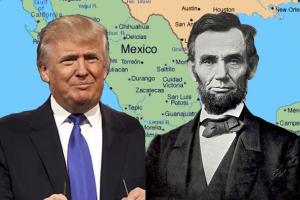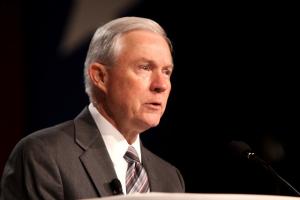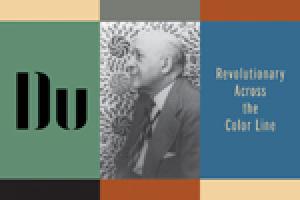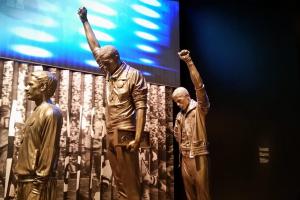When Labor Fought for Civil Rights
Dissent
 Many US historians have advanced the theory that Lincoln spoke against the war for political reasons, subsequent speeches disprove that theory as do his letters to his law partner, William Herndon. He railed against the war a second time a month after his famous “spot resolutions” over objections of the younger members of his party, and even voted for an amendment condemning the war which was tacked on to a resolution honoring war hero Zachary Taylor, who would be next
Many US historians have advanced the theory that Lincoln spoke against the war for political reasons, subsequent speeches disprove that theory as do his letters to his law partner, William Herndon. He railed against the war a second time a month after his famous “spot resolutions” over objections of the younger members of his party, and even voted for an amendment condemning the war which was tacked on to a resolution honoring war hero Zachary Taylor, who would be next
 1,424 law professors from 180 different schools in 49 states (Alaska doesn't have a law school), including this writer, signed a letter to Senators Charles Grassley and Dianne Feinstein of the Senate Judiciary Committee, stating, "Nothing in Senator Sessions' public life since 1986 has convinced us that he is a different man than the 39-year-old attorney who was deemed too racially insensitive to be a federal district court judge."
1,424 law professors from 180 different schools in 49 states (Alaska doesn't have a law school), including this writer, signed a letter to Senators Charles Grassley and Dianne Feinstein of the Senate Judiciary Committee, stating, "Nothing in Senator Sessions' public life since 1986 has convinced us that he is a different man than the 39-year-old attorney who was deemed too racially insensitive to be a federal district court judge."
 The author argues that a key factor in unifying the fractious 13 colonies in opposition to British rule during the Revolution was the patriots' effort to link British oppression to extant colonial fears about insurrectionary slaves and homicidal Indians. America's founders were chief among those spreading tales of British agents inciting blacks and Indians to take up arms against the American rebellion, making racial prejudice a foundation stone of the new republic.
The author argues that a key factor in unifying the fractious 13 colonies in opposition to British rule during the Revolution was the patriots' effort to link British oppression to extant colonial fears about insurrectionary slaves and homicidal Indians. America's founders were chief among those spreading tales of British agents inciting blacks and Indians to take up arms against the American rebellion, making racial prejudice a foundation stone of the new republic.
 The interviewer doesn't exaggerate in ranking W.E.B Du Bois as the 20th century's pre-eminent African-American author and thinker, crediting his founding and stewardship of the NAACP's The Crisis with granting him not just an agenda-setting role in civil-rights history but also international influence. Before going into detail with the biographer, he also praises Mullen for a work that is a timely introduction to this impressive and somewhat imposing figure.
The interviewer doesn't exaggerate in ranking W.E.B Du Bois as the 20th century's pre-eminent African-American author and thinker, crediting his founding and stewardship of the NAACP's The Crisis with granting him not just an agenda-setting role in civil-rights history but also international influence. Before going into detail with the biographer, he also praises Mullen for a work that is a timely introduction to this impressive and somewhat imposing figure.
 This museum tells a story. African Americans overcame centuries of oppression to record achievements in all walks of life, including the election of one of their community as president. But To preserve the gains celebrated in the museum’s galleries, it will be necessary to continue to draw inspiration from the displays on the resistance to institutional racism.
This museum tells a story. African Americans overcame centuries of oppression to record achievements in all walks of life, including the election of one of their community as president. But To preserve the gains celebrated in the museum’s galleries, it will be necessary to continue to draw inspiration from the displays on the resistance to institutional racism.
Spread the word